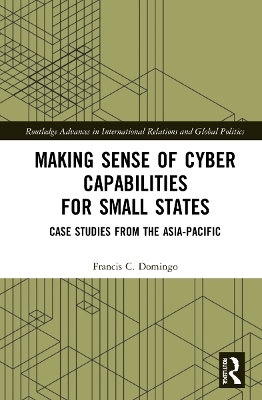
Making Sense of Cyber Capabilities for Small States
Routledge (Verlag)
978-1-032-07762-8 (ISBN)
Studies on cyber conflict and strategy have substantially increased in the past decade but most have focused on the cyber operations of powerful states. This book moves away from the prominence of powerful states and explores the potential of cyber capabilities for small states in the Asia-Pacific, the most active region for cyber conflict. It develops a systematic explanation of why Brunei, New Zealand, and Singapore have developed or are developing cyber capabilities despite its obscure strategic value. The book argues that the distribution of power in the region and a "technology-oriented" strategic culture are two necessary conditions that influence the development of cyber capabilities in small states. Following this argument, the book draws on neoclassical realism as a theoretical framework to account for the interaction between these two conditions. The book also pursues three secondary objectives. First, it aims to determine the constraints and incentives that affect the utilization of cyber capabilities as foreign policy instruments. Second, the book evaluates the functionality of these cyber capabilities for small states. Lastly, it assesses the implications of employing cyber capabilities as foreign policy tools of small states.
This book will be an invaluable resource for academics and security analysts working on cyber conflict, military strategy, small states, and International Relations in general.
Francis C. Domingo is Assistant Professor (with tenure) of International Studies at De La Salle University, Manila, Philippines. He was a Teaching Fellow in Cybersecurity and International Relations at Victoria University of Wellington in 2016. He completed a PhD in International Relations from University of Nottingham in 2018. His research and teaching lie at the intersection of International Relations and Strategic Studies. Prior to joining academia, he worked briefly as a military analyst with the Office of Strategic and Special Studies (OSS), Armed Forces of the Philippines.
1.Introduction: Small States and Cyber Capabilities 2. Mind the Gap: The Literature on Cyber Security and International Relations 3. Explaining Cyber Capability Development 4. Distribution of Power and Cyber Capability Development 5. Strategic Culture and Cyber Capability Development 6. Cyber Capabilities as a Foreign Policy Instrument 7. Conclusion: Small States in Cyberspace. Appendix 1: List of Interview Participants
| Erscheinungsdatum | 30.03.2022 |
|---|---|
| Reihe/Serie | Routledge Advances in International Relations and Global Politics |
| Zusatzinfo | 5 Tables, black and white; 2 Line drawings, black and white; 2 Illustrations, black and white |
| Verlagsort | London |
| Sprache | englisch |
| Maße | 156 x 234 mm |
| Gewicht | 453 g |
| Themenwelt | Informatik ► Netzwerke ► Sicherheit / Firewall |
| Sozialwissenschaften ► Politik / Verwaltung ► Politische Systeme | |
| Sozialwissenschaften ► Politik / Verwaltung ► Staat / Verwaltung | |
| ISBN-10 | 1-032-07762-X / 103207762X |
| ISBN-13 | 978-1-032-07762-8 / 9781032077628 |
| Zustand | Neuware |
| Informationen gemäß Produktsicherheitsverordnung (GPSR) | |
| Haben Sie eine Frage zum Produkt? |
aus dem Bereich


